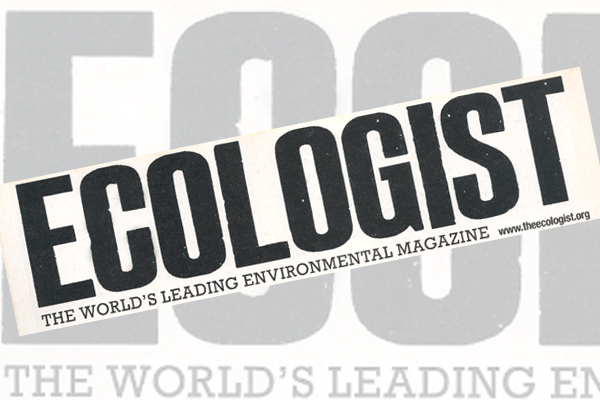Editorial: Growing Concern

Genetically modified food. It’s a big issue. Increasingly, we are handed the notion that GM food is just like any other food, only better, because of its almost magical power to solve our most immediate crises of poverty, hunger, fossil-fuel depletion and climate change.
In a world where we are daily met with the grief of an imploding financial system and the day-to-day hardships of making ends meet, it’s understandable to want to believe in such easy magic.
But GM isn’t like switching to a low-energy light bulb. If it doesn’t work you can’t take it back to the shop or, more importantly, remove it from the environment. Because only a handful of large multinational companies are behind its development, a GM future takes our food supply out of the hands of individual farmers and puts it in the grip of conglomerates, disconnected from the land and from those who work and rely upon it. In this vision of the future our relationship to land and food fundamentally changes; we are less resilient and more dependent on others to feed us. These are complex issues of growing concern.
What will become apparent as you read this special edition, written by leading thinkers, academics and campaigners in the field, is that the GM crops that promise increased yields, and drought- and saline-resistance don’t actually exist anywhere but on the drawing board. What is more, these same traits can be achieved through normal plant-breeding, and in many cases such plants will outperform GM varieties. Normal plant-breeding also means bread and butter today, rather than the jam-tomorrow promise of GM.
Why, then, the big political push for a GM solution? The answer lies in the same faulty logic that says if you want to stimulate the economy, start a war – only in this case the war is against the natural environment. Much of biotech’s money is spent on PR and spin that tells us Nature is letting us down by failing to provide enough food, and fast enough, to feed a hungry world. Let us be clear: it is humanity that has let its own kind down. The failure to feed the world is a failure of political will and of free-market economics. Indeed, none of the current crises we face is due to a lack of technofood; that is why introducing GM crops – which have never been evaluated for safety – into an already volatile mix, while ignoring the real causes of our problems, won’t get us any closer to solving our problems.
Sometimes people become frustrated with the Ecologist. They ask: ‘Why are you never satisfied? Why are you anti-science?’ We are not anti-science. We are only against the inappropriate or unnecessary application of scientific principles and discoveries as a quick fix to deeply rooted cultural, political and economic problems.
As with every issue of the Ecologist, this month’s edition tries to supply sufficient tools to help you tackle the big issues of the day effectively, with integrity and intelligence, and perhaps most importantly, to help others see the bigger picture too. Take the information here and pass it along. Talk, argue and debate, but most importantly act. Watch the films, vote in the poll, download the brochure, participate in the write-to-your-supermarket campaign and attend the conferences. You are powerful. You are persuasive. Your actions can unshackle us from a GM future. Let your voices be heard.
- This editorial first appeared in the November 2008 edition of the Ecologist.












